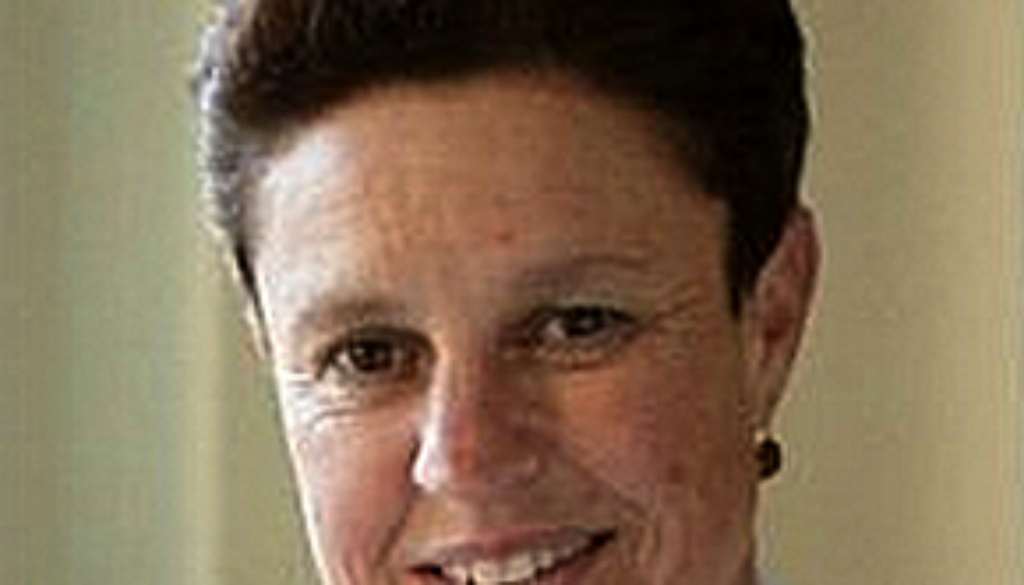Elisabeth Devilard on cosmetics
Dr Elisabeth Devilard, formerly a cancer researcher, is now senior scientist at cosmetics manufacturer L’Occitane. “The progress made in the last ten years in the field of molecular biology, coupled with our knowledge of the biology of human skin, provides us with an unprecedented arsenal of reliable techniques that clearly surpass animal tests,” she says.
 Dr Elisabeth Devilard obtained her PhD in cellular and molecular biology, before joining the Paoli Calmette Institute at the centre for cancer research in Marseille, where she spent the next 13 years studying the mechanisms underlying some of the most common cancers (prostate cancer, malignant lymphomas and leukaemias). This research brought her face to face with patients undergoing treatments, during which time she familiarised herself with using biological markers to better predict the diagnosis as well as the outcome of the disease.For the next three years Dr Devilard worked in the field of fundamental immunology at the Luminy centre for immunology in Marseille. She focused her attention on specialised types of skin cells (called dendritic cells) and their role in skin inflammation and allergies. Dr Devilard is the author of 35 articles published in the scientific literature, including The Journal of Experimental Medicine, Oncogene, Blood, Anticancer Response, Leukemia Lymphoma†and has participated in several international congresses on the subject. For the past year she has worked with the research and development team at l’Occitane in Provence.
Dr Elisabeth Devilard obtained her PhD in cellular and molecular biology, before joining the Paoli Calmette Institute at the centre for cancer research in Marseille, where she spent the next 13 years studying the mechanisms underlying some of the most common cancers (prostate cancer, malignant lymphomas and leukaemias). This research brought her face to face with patients undergoing treatments, during which time she familiarised herself with using biological markers to better predict the diagnosis as well as the outcome of the disease.For the next three years Dr Devilard worked in the field of fundamental immunology at the Luminy centre for immunology in Marseille. She focused her attention on specialised types of skin cells (called dendritic cells) and their role in skin inflammation and allergies. Dr Devilard is the author of 35 articles published in the scientific literature, including The Journal of Experimental Medicine, Oncogene, Blood, Anticancer Response, Leukemia Lymphoma†and has participated in several international congresses on the subject. For the past year she has worked with the research and development team at l’Occitane in Provence.Antidote Europe (AE): From time to time we receive calls from science or biology students who do not want to experiment or dissect animals as part of their curriculum, asking us for advice. Could you describe your experience as an undergraduate student and what strategy you employed in order to stick to your principles of not harming animals and yet graduate?
Elisabeth Devilard (ED): During my university studies, I did not experiment on animals because I always refused to do so. I considered the pithing of a frog or measuring the blood volume in rabbits — simply for the sake of completing a practical course —- totally at odds with my ethics, completely unjustified and useless. Since I subsequently went on to study human cancer in a clinical setting, I could always choose non-animal techniques including molecular biology and high throughput screening techniques that were directly applicable to human patients. However, when I decided to take a course in fundamental immunology, I very briefly used mice. I had chosen to study a course in “best practice” offered to researchers under the auspices of the CNRS (Centre National de Recherche Scientifique), in order to familiarise myself with the duties and obligations associated with “best practice” only to find myself in conflict with my principles.
AE: Although your original objection to using animals may have been for moral reasons, at what point in your career did you decide that using animals was not relevant to human health?
ED: Having worked in the field of human cancer for 13 years, it always made sense to study actual human cancers in order to better understand the underlying mechanisms responsible for triggering the disease. These mechanisms are complex and vary between the same type of cancer in different patients and even within a single tumor. Understanding the underlying mechanisms and natural course of the disease in humans provides information that is directly relevant for possible treatment modalities.
AE: You are currently employed as a research scientist by a well known cosmetics company. Could you describe in lay terms your particular field of research?
ED: At the moment I am involved with several projects, but one particular area of interest is the effect of plant extracts on donated human skin for purposes of studying any possible adverse effects that these chemicals may have.
AE: The 7th amendment to the cosmetics directive calls for a complete halt to the use of animals in cosmetics tests as well as a ban on the importation of animal tested cosmetics outside the EU, by 2013. However the European Commission is now seeking to extend this deadline until 2017—2019 and perhaps further. Do you feel confident that the technology available today could provide the necessary human data in order to avoid such a delay?
ED: The progress made in the last 10 years in the field of molecular biology coupled with our knowledge of the biology of human skin provides us with an unprecedented arsenal of reliable techniques that clearly surpass animal tests. I should like to add that l’Occitane in Provence has always considered animal testing as unethical and unnecessary. It would be a tragic thing to delay the implementation of non-animal techniques.
AE: Thank you very much for your time. Are there any topics that you would like to address that were not covered in this interview?
ED: Where there“s a will there’s a way!




